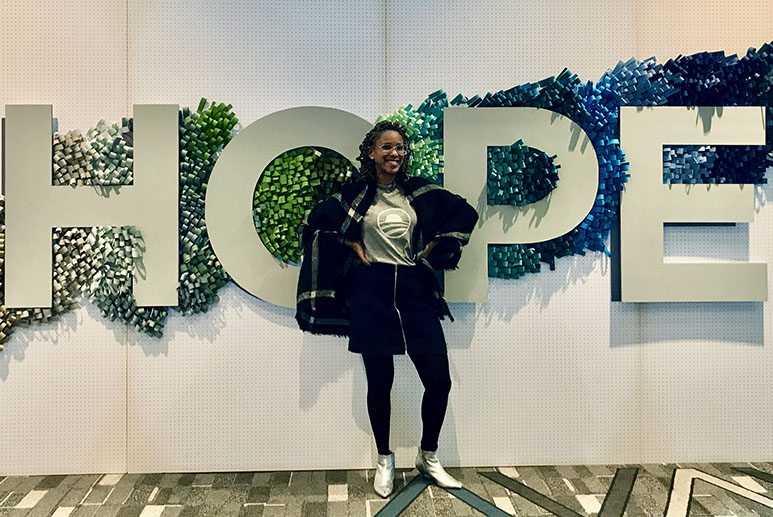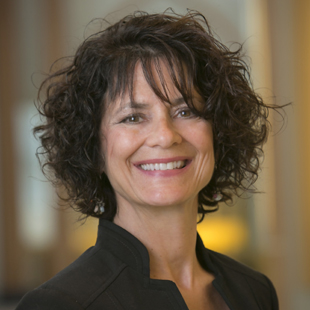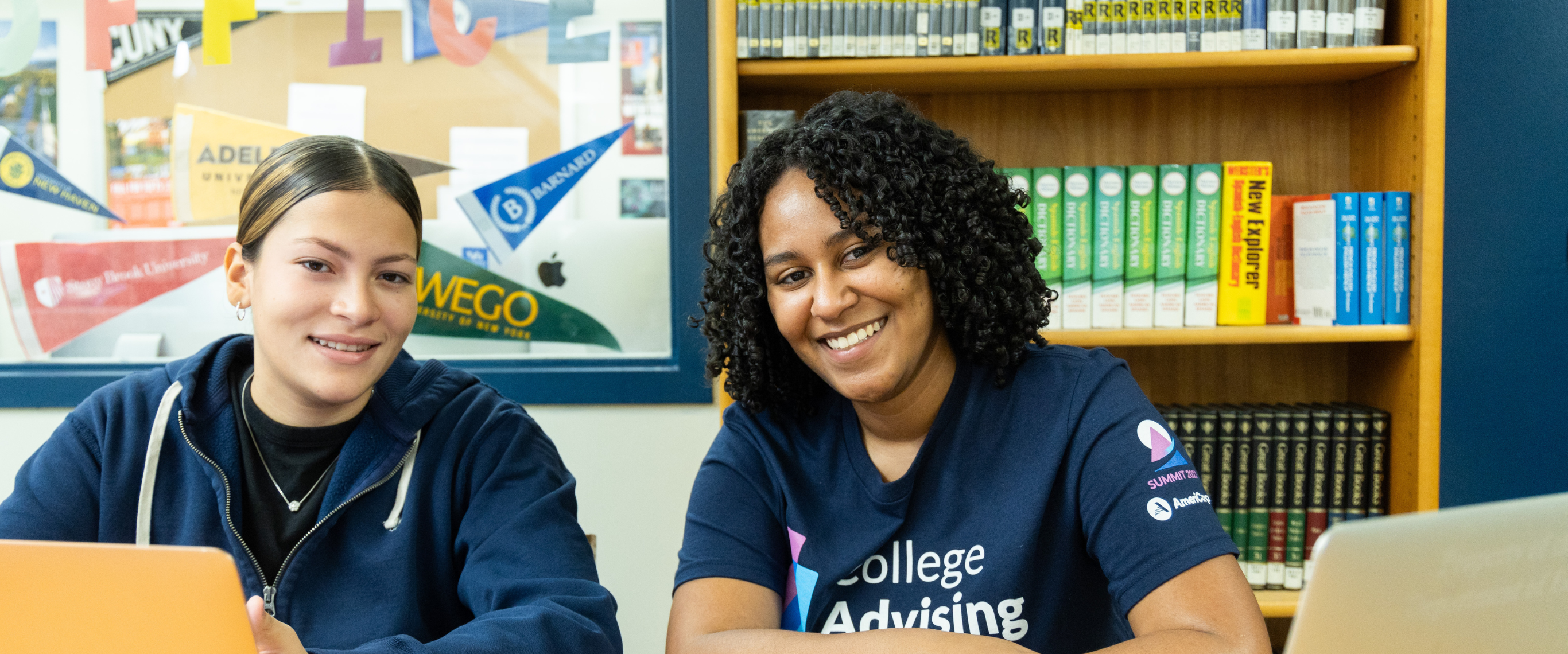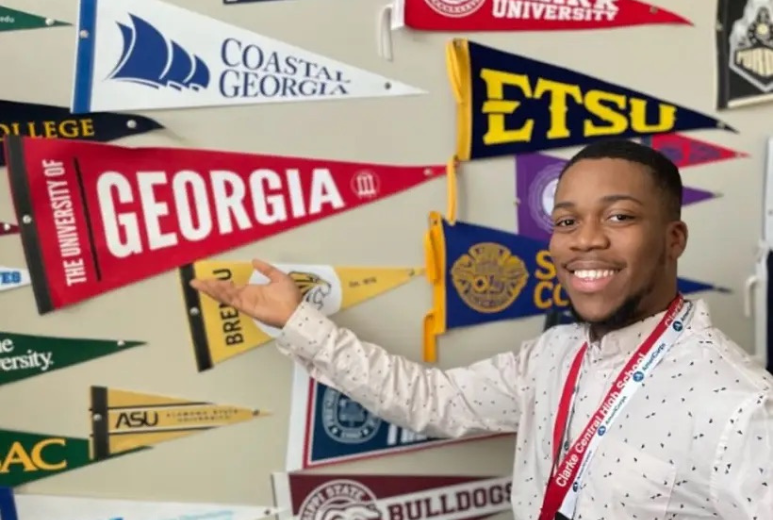Sam Viotty

 Samantha “Sam” Viotty grew up in New York City. She split time living with her mother and her parents on weekdays and living with her father and his mother on the weekends.
Samantha “Sam” Viotty grew up in New York City. She split time living with her mother and her parents on weekdays and living with her father and his mother on the weekends.
“My father was very adamant about education,” remembers Sam. “We spent our weekends together at the library and at museums—something I still do on weekends. I was told that going to college wasn’t an option; it was mandatory.”
Based on her conversations with her father, Sam believed that every student went to college after high school. However, as she entered middle school, she says she was able to see that for some students college might not be an option.
“I really loved school and was even more excited for college when I was in high school,” she says. “When I got to sophomore year, my friend and I spent all our free time looking up statistics and photos of different colleges outside of the city. I dreamt of going to college and meeting new people, learning new things, being in a new environment, and developing some freedom away from home. I went out of state for college and it was the freedom I desired.”
Sam enrolled at Wheaton College where she received her Bachelor of Arts degree in Film and New Media Studies. After graduating in 2014, Sam joined College Advising Corps at Boston University. After completing her service, she went on to receive her Master of Arts degree in Civic Media, Art, and Practice. Sam is co-founder of the Rosedale Collective, an accelerator program and record label helping talent of color advance in country music.
How did you hear about College Advising Corps and what compelled you to apply?
I had heard about College Advising Corps through a job posting. I was interested in education-focused work and was already working as a college adviser during my college breaks at College Confident. I was helping students in Brooklyn and Queens fill out their FAFSA applications, editing college essays, revising Common Applications, organizing paperwork, and helping make choices about which colleges to choose. I knew I wanted to continue this work and I could tell from the minute I spoke to Katie, the Boston University program director, I was going to get the development, resources, and knowledge I needed to support other students.
What was the most challenging aspect of serving as a College Advising Corps adviser?
Serving as a near-peer adviser was more challenging than I had expected when I began. I spent a lot of my time trying to reaffirm myself and exercise authority as someone who was maybe one to three years older than the oldest students I was working with. In addition, I had to prove that I was competent with my colleagues who were almost a decade older than me as well. Building trust was key and helped me get over the anxiety around being a younger staff member.
What was most rewarding as it relates to your service?
Connections with young people for sure! I keep in touch with a lot of the students that I worked with during my first year as an adviser. I can’t believe they are adults who have jobs, families, and children and have graduated from college or their postsecondary programs. It’s incredible to see how all of their paths have continued to grow after my time with them.
What promising practice did you find most valuable?
I learned so much about evaluation & tracking data from my time with College Advising Corps. It is one of the most valuable skills that I’ve been able to use in every job I’ve had since.
If there were one thing you would change or enhance about the program, what would it be?
I think it would be interesting to add certifications to the program (maybe project management, trauma-informed teaching/facilitation, etc).
Where has life and career taken you since your time with College Advising Corps?
I feel like College Advising Corps cultivated an entrepreneurial spirit within me. I have worked at different organizations during their start-up phase or starting new programs within them: The Obama Foundation, Adobe, Emerson College, Loyola University Chicago, Curative Inc, and my own company. I am currently one of three co-founders of an accelerator program for musicians. I spend a lot of my time bringing resources together to support talented young musicians in their careers. I bring together curriculum, individuals, resources, and partnerships to make the program happen. I’ve since moved from Boston to Washington DC and now live in Los Angeles.
How has your service with College Advising Corps helped propel or inform your continued education and/or career?
My service has helped me better understand how to develop programs, continue towards a path in education (likely one of the reasons why I got a master’s), and continue to want to work with young people. I found joy in working with the next generation and knew I wanted to do it outside of a school setting.
What do you hope to be doing 10 years from now?
I hope to continue to follow whatever piques my interest at the time. I’ve never been someone who just knew what they wanted to do. I’ve taken opportunities when they’ve presented themselves and I hope I keep that same energy a decade from now.
If you could share just one bit of advice with our incoming advisers, what would that be?
Find a way to talk to everyone around you. I spent so much time with the school nurse, the science teacher, the math teacher, the other college counselors, students, and the security guards. I can’t imagine my experience without them.
If you are a College Advising Corps alum and would be willing to share your experience serving as an adviser, please contact Karen E. Butler, Sr. Director of Communications. If you are a recent or soon-to-be college graduate and interested in learning more about serving, visit Become An Adviser.

Karen E. Butler joined College Advising Corps in 2019 with more than 20 years of experience in marketing and communications. Karen has a Bachelor of Science degree in mass communications with a concentration in public relations.


